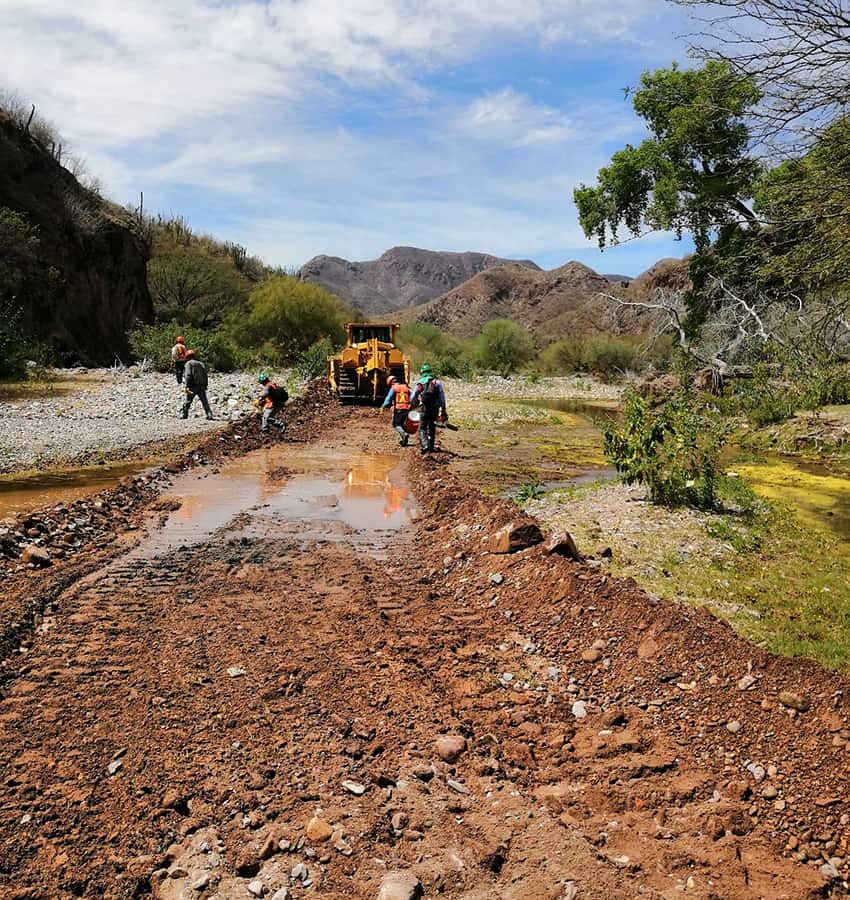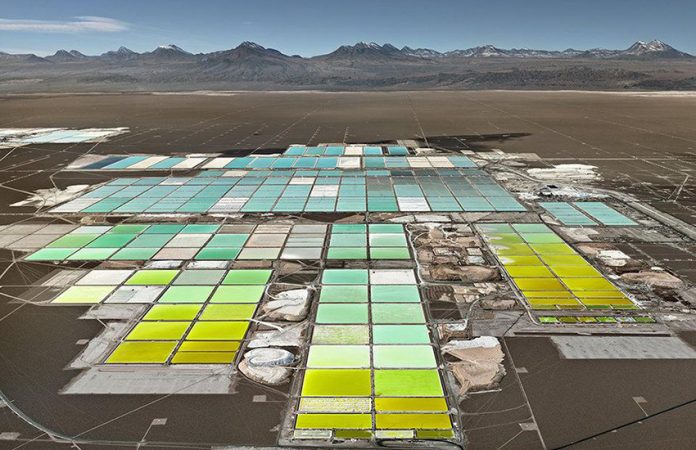The ruling Morena party is no longer seeking to nationalize lithium mining and instead will encourage private investors to help develop Mexico’s potential to produce the sought-after, ultralight metal.
Mexico has large potential reserves of lithium, which is used in a range of batteries, including those that power electric vehicles, but most of it is in clay deposits that are technically difficult and expensive to mine.
Morena Senator Alejandro Armenta, head of the Senate’s finance committee and a close ally of President López Obrador, said late last year that the government could establish a state-run lithium monopoly. But in an interview with the news agency Reuters this week, he said he will author a bill promoting a regulated market for lithium mining.
“We’re convinced that we need private investment, and we’re allies of domestic investors and also foreign investors who respect us,” Armenta said.
The lawmaker told Reuters that his new stance was the result of having studied regulatory frameworks for lithium in other countries.

A market-friendly lithium bill will be taken to Congress at the start of the new sitting period in September, he said, when the makeup of the lower house will have changed as the result of elections this Sunday.
López Obrador, who is pushing to increase the state’s control of the oil and electricity markets after the previous government opened them up to private and foreign companies, said in March that his administration was looking at the possibility of taking a larger stake in the nascent lithium sector.
But Economy Minister Tatiana Clouthier said in a radio interview last month that the government was considering a public-private partnership, suggesting that the state might seek to secure a 51% stake in the sector, which is centered on the northern state of Sonora.
Armenta told Reuters that he supports such an arrangement.
The news agency noted that large oil companies have mostly been unwilling to engage in joint ventures with Pemex if the state oil company is responsible for operations.
“It was unclear if lithium investors would react similarly,” Reuters said.
It also said that developing Mexico’s lithium potential could help diversify sources for the metal, for which there is growing demand as automakers such as General Motors and Ford make plans to manufacture new electric vehicles later this decade. Lithium production is currently concentrated in a small number of countries led by Chile and Australia.
Mining lithium in Mexico, however, poses significant challenges. Reuters said that about three-quarters of global production comes from lithium-rich saline brines, while the remainder is extracted via rock mining.
However, in Mexico, most lithium deposits located to date are trapped in clay soils. Former federal environment minister Víctor Manuel Toledo asserted in late 2019 that lithium will be Mexico’s “new oil,” such is the vastness of its reserves.
But Fernando Alanís, former CEO of major silver miner Peñoles and president of the Mexican Chamber of Mines, doesn’t share his optimism.
“Unfortunately, Mexico’s potential doesn’t really exist because there isn’t a commercial process to remove lithium from clays,” he said.
However, there are several lithium projects under development, Reuters noted. Lithium Americas Corp, which has a project in Nevada, said it is confident it will be able to extract the metal using a process that involves acid leaching.

Three years ago, Bacanora Lithium, which has four concessions in Sonora, predicted output of 17,500 tonnes of lithium carbonate by 2020. However, the firm — which hasn’t revealed how it intends to extract lithium — failed to begin production. It is now forecasting that it will commence mining in 2023 and eventually increase production to 35,000 tonnes annually. If it achieves that target, Mexico would be catapulted to “major producer status,” Reuters said.
Such a quantity would have accounted for 43% of last year’s global production, which was 82,000 tonnes, according to the United States Geological Survey.
Whether Mexico will become a major lithium producer and reap the economic rewards remains uncertain. But the potential for a windfall appears high, and the government — while willing to partner with private companies in order to tap their expertise — appears determined to take the lion’s share of the profits.
Source: Reuters (en)
